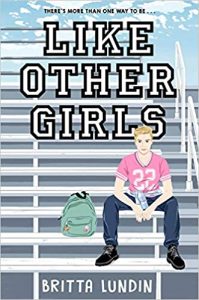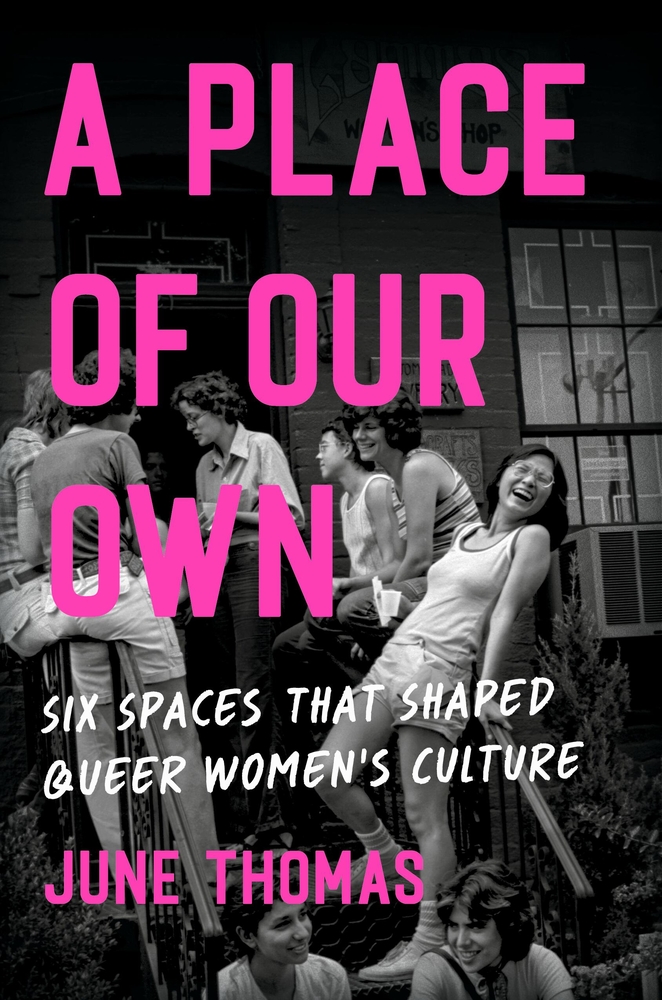Mara loves basketball—which is a problem, because she’s currently not allowed to play. After getting in a fight during a game, her coach kicks her off the school team and bars her from rejoining until she can prove that she can be a team player. In an attempt to prove her ability to not let her anger get in the way, she joins the all-boys football team with her best friend, Quinn, and her brother, Noah. Although her intention isn’t to make a political statement and all she really wants to do is play the game, Mara’s decision causes a ripple effect across her small town, inspiring four other girls to join the team. Mara suddenly finds herself having to juggle an unwilling media presence, her ongoing struggle to hide her queer masculine identity from her family, a new sport to learn and master in a short amount of time, an unexpected and drastic amount of ostracization from the boys as they treat her like “one of the girls”, and the complicated feelings that arise by having to coach her crush and nemesis, all while helping each other perform at a level that would justify their controversial presence on the team.
I commend Lundin, first of all, for writing a story about queer and feminist liberation in a way that was inspiring while still remaining grounded and realistic. Sometimes, when authors want to write stories about women and queer people fighting systems of oppression, they write their characters as being infallible, almost superhuman perfect beings. I believe it can often undermine the message of the story and create a sense of guilt or imposter syndrome in the reader for not being nearly as overachieving or successful. What Lundin did was write a very relatable cast of characters. They are good at some things, based on the abilities and knowledge that they’ve gained from other hobbies or interests they have, and they use those capabilities to their advantage as much as possible. However, they are by no means instant experts at football by the sheer miracle of feminism and friendship. Showing the ways in which the girls failed and struggled throughout the story allowed me to connect with them, and it echoed a lot of my own feelings as a young, closeted girl who was terrified of imperfection for fear that it would invalidate everything that I had ever worked for or any value and respect I hoped to have in the eyes of my peers. The book does a fantastic job of pushing this message that feminism and queer liberation isn’t about showcasing how perfect women and queer people are, but more so about allowing women and queer people to take up space in the world to learn, discover, and improve in any sphere they wish to access.
Mara is a fantastic main character for a YA audience, specifically because she starts out as flawed in ways that are extremely common for young women and queer teens. Misogyny is something that is so deeply ingrained in our society, that even those who are victims of the patriarchy often fall for the trap of upholding it at the detriment of others, in the hopes that it will save and protect them. Mara is one of these people, and I love that Lundin does not allow her internalized misogyny to go unchecked. She undergoes a slow and difficult process of having her habits and beliefs be regularly criticized by the other girls in the group, and no matter how much she pushes back, the book as a whole doesn’t allow that misogyny to be upheld. I think it’s a great message to teach young girls and queers, especially those who are masculine of center: even through your process of rejecting the femininity that is imposed on you, you should never simultaneously be harboring misogynistic ideas and stereotypes towards others, because it will not save you and it will not justify or validate your identity to the rest of the world.
I also deeply admire Lundin for writing characters that explicitly use the terms “lesbian” and “butch”. It’s so rare to come across these identities spelled out so clearly in fiction these days, and it’s always such a breath of fresh air for me when I find an author who doesn’t shy away from them, especially when their stories feature younger, teenage characters.
Finally, I appreciate the way that the book teaches all of these lessons with, yes, hard truths, but also an incredible amount of love and care and community. The friendships that Mara develops throughout the story are so special and precious, and it’s a true ode to found family and its power against institutions of oppression. It was beautiful to have multiple queer characters distinctly involved in helping Mara discover how she identifies, how to feel comfortable in her skin, and how to stand for herself, especially in a hostile small town setting. Amidst all the homophobia, lesbophobia, and misogyny, it was a beautiful experience to watch Mara become more and more herself as the story went on and reach out bit by bit for queer support and community, despite the fear and uncertainty of it all. We are nothing without the support we receive and give to those around us, and that is beautifully represented within the pages of this novel.
Like Other Girls is a wonderful story that is not only incredibly important for its YA audience, but that can also be deeply emotionally healing for older adult readers. I highly recommend picking it up!
Representation: Butch lesbian main character, biracial Asian-American lesbian love interest, butch and non-binary side characters
Content warnings: homophobia, small town homophobia, lesbophobia, misogyny, sexual harassment, toxic relationships, bullying, religious bigotry

